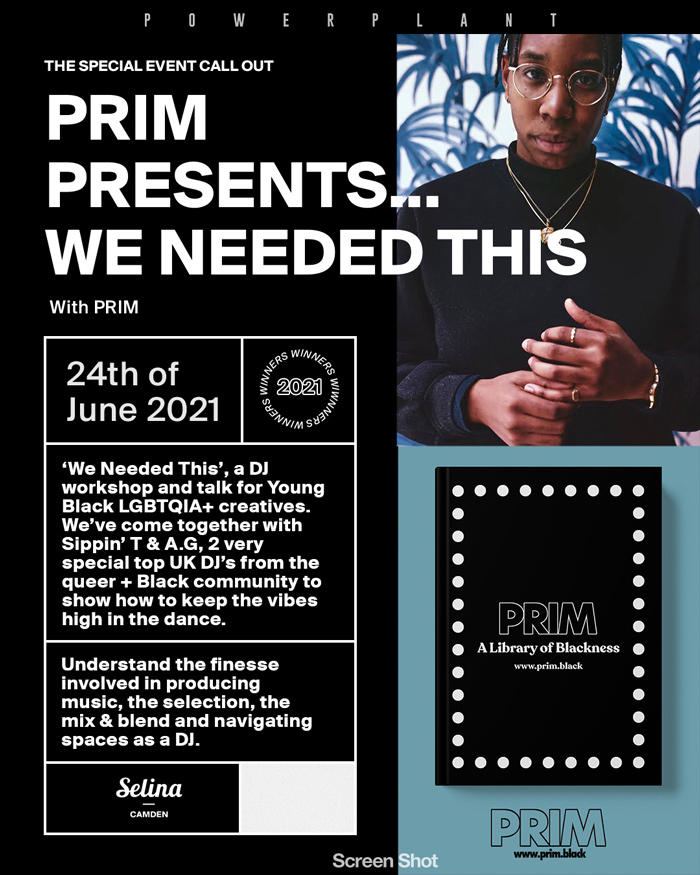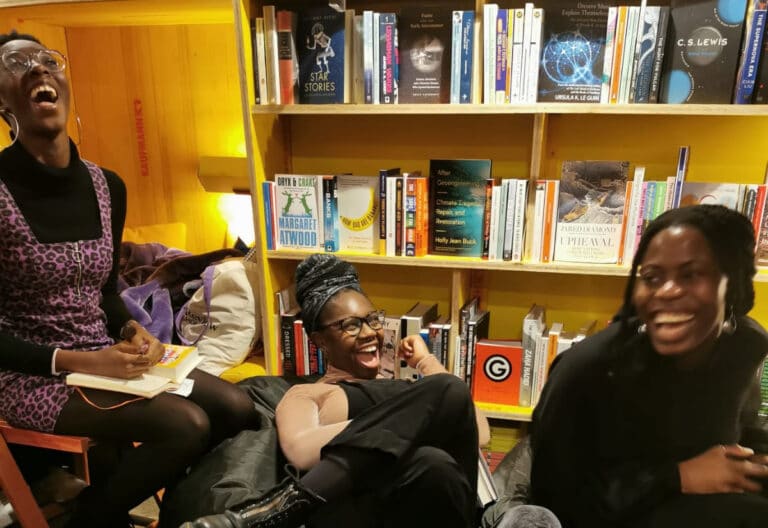PRIM presents We Needed This, an event focused on celebrating the black queer community through music

By Alma Fabiani
Published Jun 17, 2021 at 02:22 PM
Reading time: 2 minutes
In partnership with Selina
As one of the ten winners of The Special Event Call Out we launched in partnership with Selina last month, PRIM presents We Needed This, a free DJ workshop for young black LGBTQIA+ creatives, which will be held at Selina’s new Camden location on Thursday 24 June. With only 15 tickets up for grabs, we spoke to K Bailey Obazee, founder of PRIM, curator, and professional storyteller about their upcoming event and why you should be coping your ticket right now.

PRIM: a platform for storytellers
First things first, if you’ve never heard of PRIM, then let me tell you—you’ve been missing out. The unique online space is dedicated to educating, connecting, documenting and sharing the myriad of Black stories, experiences and words that exist. “Our goal is to make stories of African, Caribbean and Afro-Latinx fam accessible to all. From a pioneering author’s catalogue and written stories to video readings, films, documentaries, photography and more—you’ll find it all on PRIM. Stories created and told by us,” K explained.
Launched in 2019, PRIM was born out of K’s interest in not only knowing about their community’s collective history, but also understanding it in order to define who they are, how they express themselves and be valued as a queer black person. “I love engaging in stories, and when I can see myself represented in them it invigorates me. Our platform can serve to really move society into a lasting, more inclusive, community-oriented direction,” they shared.
PRIM has achieved a lot in such a short space of time, cultivating an engaged community ready to learn and educate. “We could not be more excited or proud of what we have achieved and the support of the community to get us here. We have so many amazing black storytellers who have contributed to the platform and we just love their work!” K added.
We Needed This
After over a year of online events and video calls, PRIM, just like the rest of the world, felt the need to reconnect with its community, as well as with new faces, through a real-life event. And what better title for a first real-life event based on exchange and coming together than ‘We Needed This’?
“We really just wanted to create a space to come together and learn something!” said K. “Music is very intrinsic to the queer black community and not just in partying but in production, as a musician and also in supporting musicians.” We Needed This will consist of an evening revolving around a DJ workshop taught by two top UK DJs from the black queer community, Sippin’ T (also known as one of the co-founders of BBZ) and renowned producer A.G.
“Our young black creatives are the next generation of party-goers and organisers. Being able to do shit yourself and also collaboratively is vital for us. We hope this gives Sippin’ T and A.G a chance to pass on knowledge gained over years in the game and also create room for the young people to meet them, hear about their journey intimately and, of course, learn the art of DJing,” K explained.
PRIM is all about storytelling and sharing the myriad of ways and mediums individuals can use to tell their own stories. And music is a huge part of that. “We’re really wanting to reach out to young people and get them inspired by the work of safe spaces like Exist Loudly. We want to add to their work and support them, which is why we’re prioritising young people from their network.”
And if you’re still not convinced PRIM’s event is perfect for you, K has nothing but kind words, “That’s okay, if not now then maybe another time. It’s important people get involved in things when they feel truly ready. We’re here though and we always will be.”
If you do feel like this event might be the one, then make sure to get yourself a ticket here while they’re still available, and on that note, I’ll leave you with K’s contagious excitement about meeting you all, “It has truly been way tooooo longggg and we’ve missed being in a room full of gays!”





